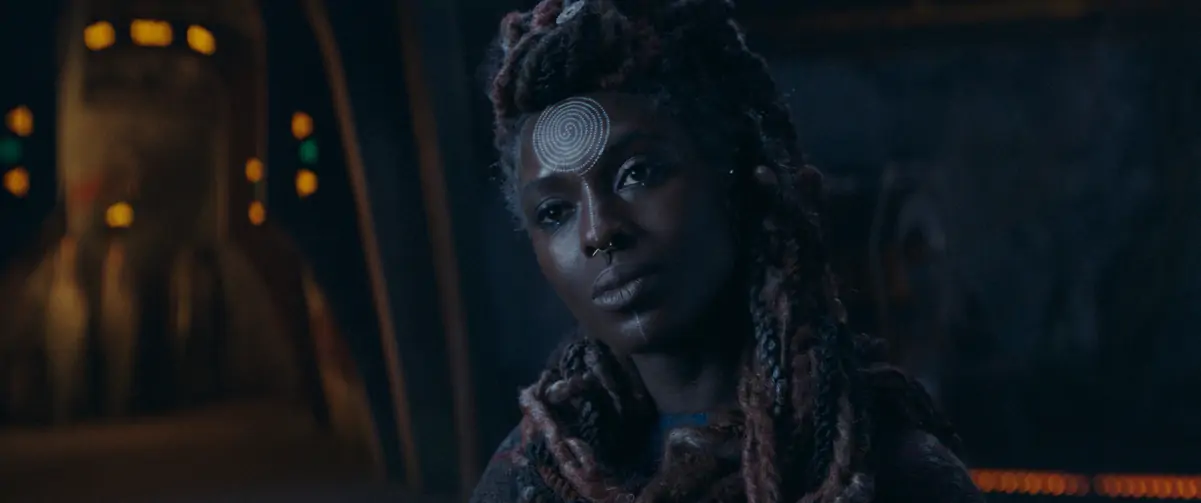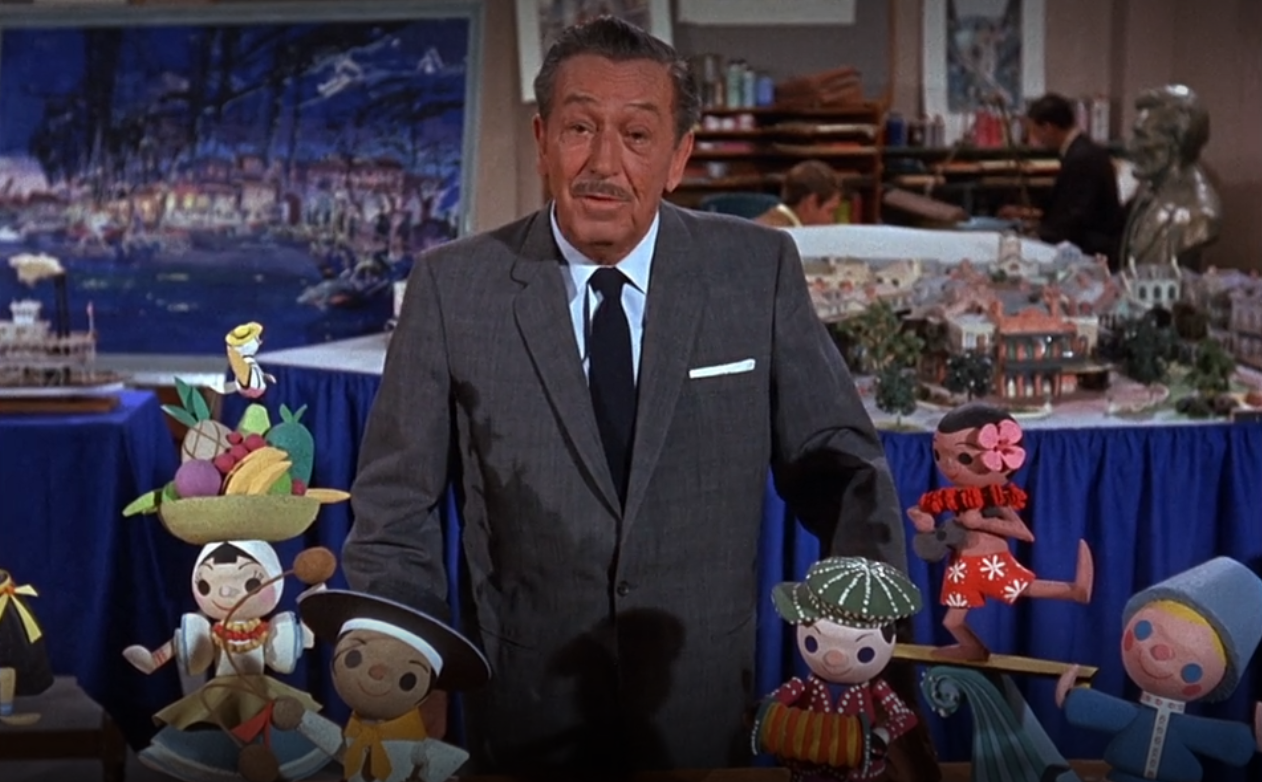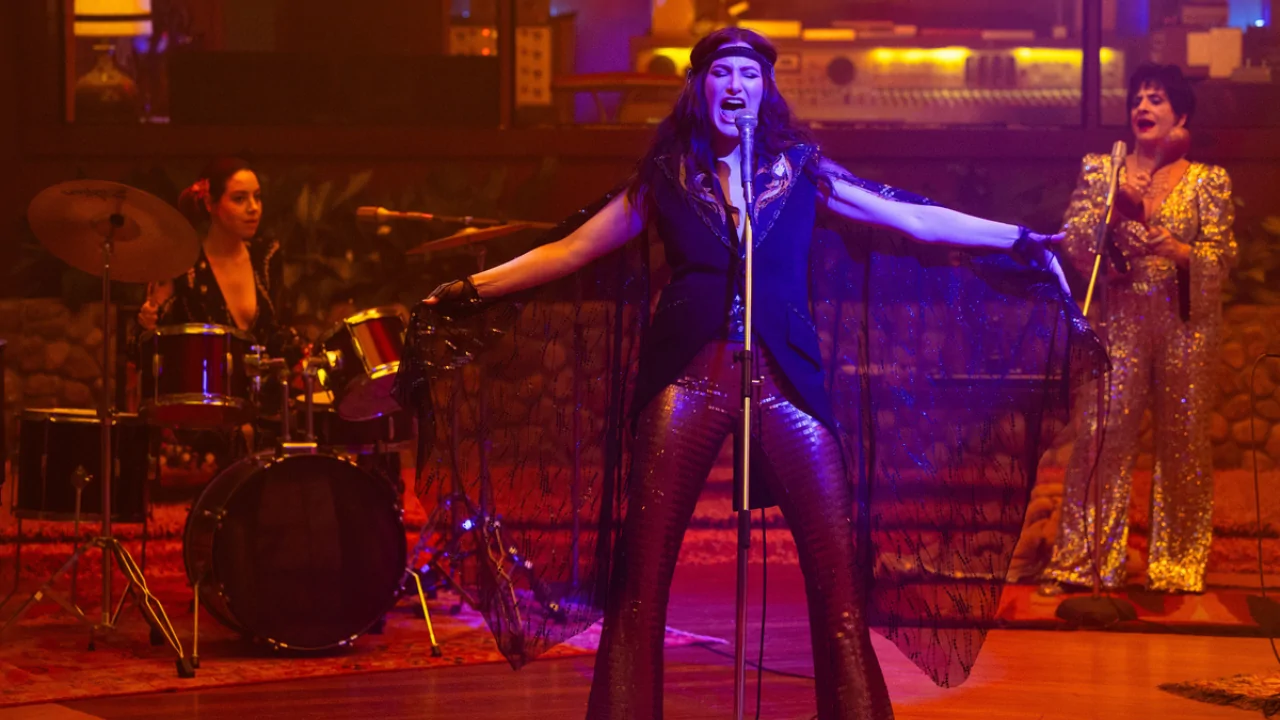
In the latest Marvel series from Disney, titled “Agatha All Along“, the narrative continues to challenge conventional family structures. As previously speculated, showrunner Jac Schaeffer revealed at PaleyFest that Agatha Harkness (Kathryn Hahn) and Rio Vidal (Aubrey Plaza) conceived a son named Nicholas Scratch without involving a father figure. This storyline mirrors a similar revelation from last year’s series “The Acolyte“, where the characters Osha and Mae were also shown to have been conceived by two women, effectively omitting any traditional male role in their upbringing.
Schaeffer’s remarks during the panel suggest that the connection between Nicky being Agatha and Rio’s son wasn’t a coincidence. This speculation first emerged at PaleyFest when Sasheer Zamata, a cast member of Agatha, mentioned that many viewers believe Nicky is Agatha and Rio’s son. Schaeffer agreed with this assumption, effectively validating the rumor. Schaeffer chose not to delve into the details of how and why this was the case. Yet, she affirmed happily, “It was nice to have something that fans had suggested we could confirm.

She clarified when discussing Agatha and her child, “We’ve been asked numerous questions, such as ‘Who’s the father?’ Our response was, ‘What’s your interest in knowing this?'” She went on to say that the writers found this aspect significant, and it was equally important to her. In a way, they decided not to entertain the question of the child’s paternity at all, suggesting that such curiosity might now be seen as outdated or irrelevant.
Later, Variety appears to support this by stating, “In the series, Agatha Harkness carries a locket as a memento of her son Nicky, whom she shares with Rio.
Entertainment publications such as Variety appeared overly enthusiastic in their approval of this decision, frequently pairing it with articles that lauded the series’ other topics, including “mommy issues” and character-focused songs. However, there was no indication of any apprehension regarding the potential wider impact or audience response to these storytelling decisions.
But viewers are telling a very different story.
Both “Agatha All Along” and “The Acolyte” have faced harsh indifference from audiences, verging on open disapproval.

As per Luminate’s 2024 Film and TV Report, the series “Agatha All Along” did not surpass the milestone of 2 billion minutes watched, which places it among the least successful Marvel series currently streaming on Disney+. To put things into perspective, even the heavily criticized series “Secret Invasion,” which received negative feedback from both fans and critics, managed to attract approximately 3 billion minutes watched.
Initially, “The Acolyte” premiered with modest viewership, but soon saw a sharp drop in audience interest. Consistently, fan discussions and critiques pointed out dissatisfaction towards the series’ plot, characters, and heavy political undertones. It seems Disney’s strategy of incorporating a similar anti-authoritarian, ideologically charged narrative into both its Marvel and “Star Wars” franchises hasn’t gone unremarked.
The trend is evident: Disney repeatedly promotes a perspective that undermines or omits conventional family dynamics, particularly the role of fathers. This stance seems contradictory, considering that Disney’s empire and its parks have been established upon the pillars of the traditional American family.
 Walt Disney in Walt Disney’s Wonderful World of Color (1966), Walt Disney Productions
Walt Disney in Walt Disney’s Wonderful World of Color (1966), Walt Disney Productions
As a movie enthusiast, I’d put it this way: In the series like “Agatha All Along” and “The Acolyte”, we don’t see any traditional father figures. Instead, they explore unique family structures where the role of a father is either disregarded or replaced by something extraordinary. For instance, in “Agatha All Along”, the son’s origin story revolves around two women, and any hints of a father figure feel unnecessary or intrusive. Similarly, in “The Acolyte”, the Force itself serves as a sort of surrogate parent, filling the void that would typically be occupied by biological or emotional ties. This isn’t entirely novel to the Star Wars universe; Anakin Skywalker from the prequel trilogy was also a product of the Force, conceived through his mother Shmi Skywalker in a way that echoes messianic “virgin births”. However, “The Acolyte” and “Agatha All Along” stand out because they focus on children born to two women in loving relationships.
In olden times, the Marvel Cinematic Universe (MCU) was constructed on themes that revolved around family, lineage, and parent-child relationships, striking a chord with countless viewers. The complicated bond between Tony Stark and his father, Thor’s effort to meet Odin’s standards, Peter Quill’s quest for acceptance—these core aspects helped establish the series as a staple. Additionally, the Star Wars saga was crafted with a strong emphasis on fathers and sons, which formed its foundation in the original trilogy.
Currently, what were once universal themes that everyone could connect with have been swapped for political rhetoric, ideological explorations, and stories centered around identity. The audience’s reaction is resounding: they seem to be disengaged.

As a movie enthusiast, I must admit that the term “progress” in entertainment media can sometimes be misleading. Despite the hype around shows like Agatha All Along and Echo this year, neither of them managed to crack the Top 10 streaming originals of 2024. Instead, it was Netflix, Paramount Plus, and Amazon Prime that dominated the list. Even the least-watched entry on Netflix’s Love Is Blind Season 6 racked up an impressive 7.38 billion minutes watched. It seems like Disney’s once-popular franchises, such as Marvel and Star Wars, are finding it increasingly challenging to stay relevant as viewership numbers decline.

Despite indications to the contrary, Disney seems unwavering in its approach. With key figures such as executives and showrunners openly affirming these creative choices as intentional and integral to their concept, it’s clear that the studio is deeply invested in incorporating political themes, potentially at the expense of audience engagement.
The fans, however, seem to have made up their minds.
Read More
- AUCTION PREDICTION. AUCTION cryptocurrency
- Pokémon Destined Rivals: Release date, pre-order and what to expect
- Stephen A. Smith Responds to Backlash Over Serena Williams Comments
- JK Simmons Opens Up About Recording Omni-Man for Mortal Kombat 1
- Pregnant Woman’s Dish Soap Craving Blows Up on TikTok!
- POL PREDICTION. POL cryptocurrency
- Daredevil: Born Again Spoiler – Is Foggy Nelson Alive? Fan Theory Explodes!
- Owen Cooper Lands Major Role in Wuthering Heights – What’s Next for the Young Star?
- BERA PREDICTION. BERA cryptocurrency
- Is Disney Faking Snow White Success with Orchestrated Reviews?
2025-03-24 19:55